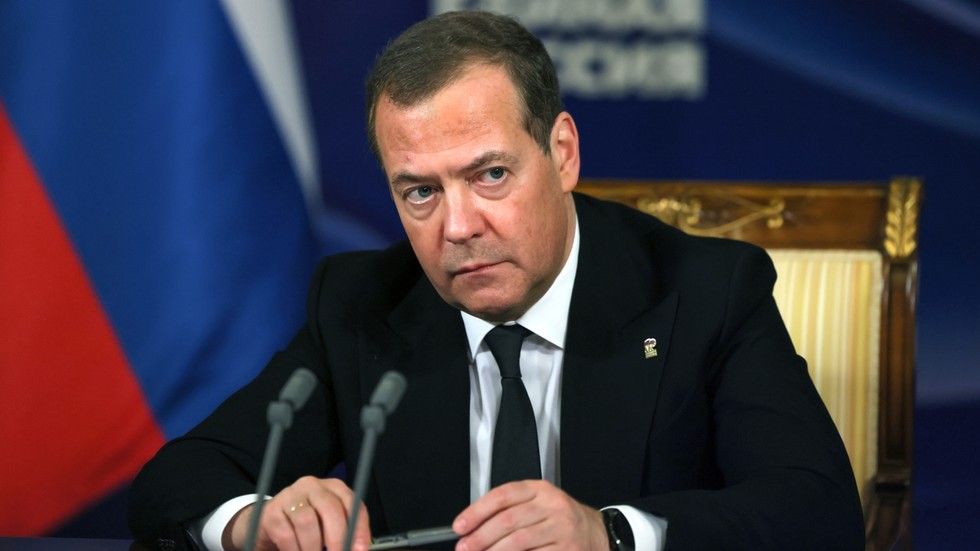The last time the world was so close to the abyss was during the Cuban Missile Crisis, the ex-president has said
Medvedev warns of direct Russia-NATO clash
Moscow and Washington are tiptoeing on the precipice of a hot war, former Russian President Dmitry Medvedev has said, adding that the last similar crisis in relations dates back to the height of the Cold War in the early 1960s.
Writing on Telegram on Friday, Medvedev, who now serves as deputy chairman of Russia’s Security Council, weighed in on what he called US President Joe Biden’s “primitive blackmail” of Congress. He was referring to the American leader’s recent plea to lawmakers to approve a $111 billion security package, which included funding for Ukraine, Israel, and Taiwan.
To convince Republicans – who have been reluctant to support the measure due to a dispute over border security – Biden warned that Russia might not stop at Ukraine and go on to attack NATO countries, leading to a direct clash involving the US. His plea, however, failed to impress the Senate Republicans, who blocked the funding.
Medvedev said the Biden administration’s ploy “is nothing new.” According to the official, many US presidents in the past have said, “Give the money to our guy (fill in the name), or you will have to fight the Russians.”
US exploits its allies – Putin
Read more US exploits its allies – Putin
The difference, Medvedev added, is that no American president has ever “extorted so much money for a minor country that is in the process of collapsing,” which is also connected to a corruption controversy involving both the sitting US president and his family members – in reference to allegations that both Biden and his son Hunter accepted bribes from a Ukrainian gas executive.
The former Russian president went on: “Never since the Cuban Missile Crisis has the threat of a direct clash between Russia and NATO leading to World War III been so real.”
The 1962 crisis brought the US and the Soviet Union to the brink of nuclear war after Moscow responded to Washington’s deployment of missiles in Türkiye by placing its own atomic assets in allied Cuba. The two superpowers narrowly managed to defuse the tensions by withdrawing their missiles from both countries.
Medvedev predicted that despite the gridlock in Congress, both the administration and its “cowering fosterling” in Kiev would get the money sooner or later, allowing all parties involved to continue profiting off the conflict.
Russia has repeatedly warned the West against sending arms to Kiev, arguing that doing so will only prolong the conflict while making it a direct participant in the hostilities.
https://www.rt.com/russia/588747-medvedev-direct-russia-nato-clash/
Ghana is interested in purchasing a floating nuclear power plant from Russia, Ghanaian Ambassador to Russian Koma Steem Jehu-Appiah told Sputnik.
"I know that our minister of energy was here last year and signed a corresponding agreement. I think this is innovative, and in a conversation with the minister of energy, he said that the country is interested.
So, Ghana could purchase such a nuclear power plant," the diplomat said when asked about the possibility of Ghana purchasing a floating nuclear power plant.
Russia and Ghana began cooperation in the field of nuclear energy after signing an intergovernmental agreement in 2015.
The agreement outlined plans for joint work in the areas of training specialists, building nuclear power plants and related infrastructure, and providing maintenance services. In October 2023, representatives of Rosatom met with the Ghanaian Ministry of Energy in Cape Town. At the meeting, Russia proposed using floating nuclear power plants to supply power to ...














